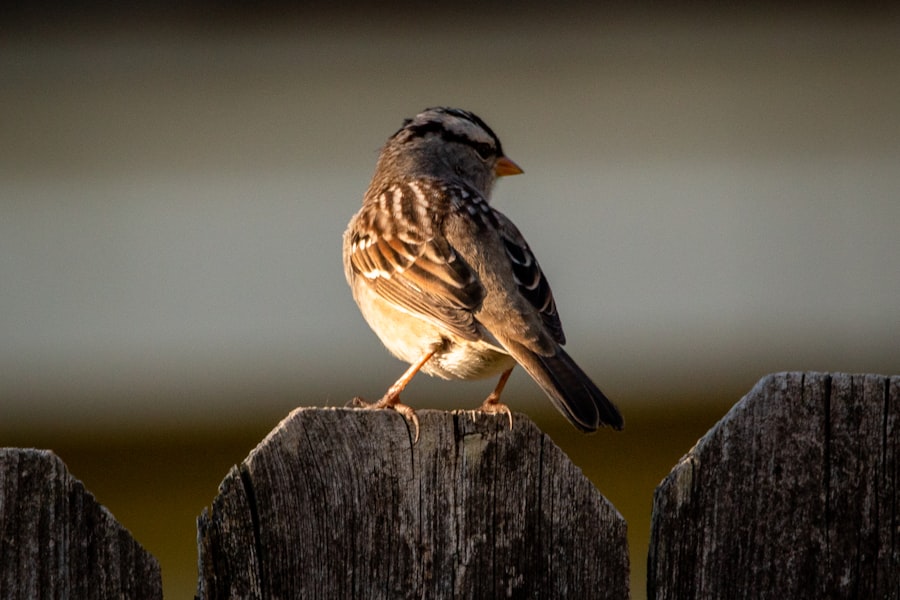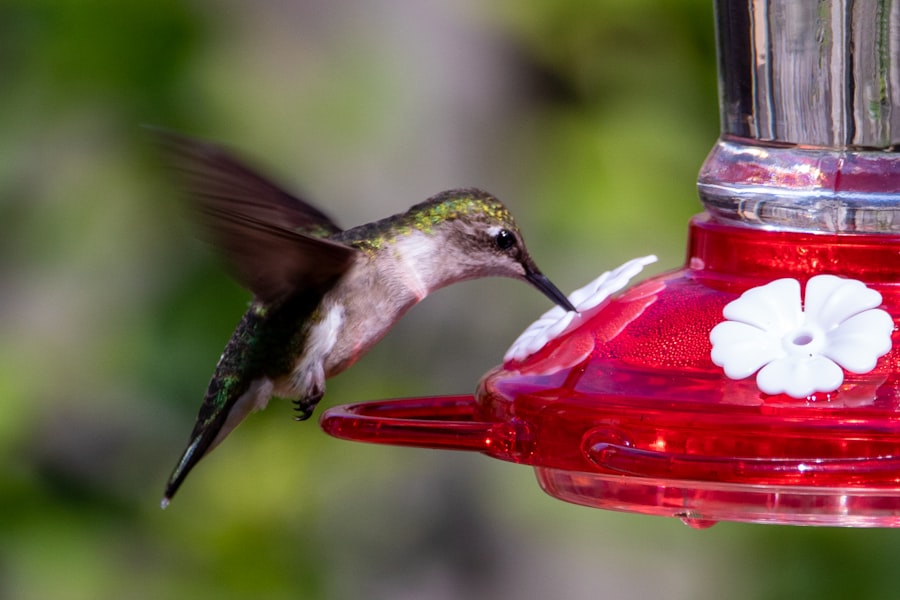When selecting chicken breeds for a backyard flock, several factors should be considered. Climate is a crucial factor, as some breeds are better adapted to cold weather, while others thrive in warmer conditions. The purpose of the flock is also important; certain breeds are known for high egg production, while others are valued for meat quality.
Temperament is another key consideration, especially for families with children or other pets. Docile breeds are preferable in these situations, while more active breeds may be suitable for pest control. The choice of breed ultimately depends on the specific requirements and preferences of the flock owner.
Factors such as space availability, local regulations, and noise tolerance should also be taken into account when making a decision.
Table of Contents
- 1 Creating a Coop and Run
- 2 Feeding and Watering
- 3 Providing Enrichment
- 4 Health and Wellness
- 5 Handling and Socializing
- 6 Egg Collection and Care
- 7 FAQs
- 7.1 What are the basic requirements for keeping 2 chickens?
- 7.2 What type of coop is suitable for 2 chickens?
- 7.3 What should I feed my 2 chickens?
- 7.4 How much space do 2 chickens need to roam?
- 7.5 What are some common health issues to watch out for in 2 chickens?
- 7.6 Do I need to provide any special care for 2 chickens in the winter?
Key Takeaways
- Consider the climate, space, and purpose of raising chickens when choosing the right breed for your needs.
- When creating a coop and run, prioritize safety, space, and protection from predators.
- Provide a balanced diet and clean water for your chickens to ensure their health and well-being.
- Enrich your chickens’ environment with toys, perches, and dust baths to promote natural behaviors and reduce stress.
- Regularly monitor your chickens’ health, provide necessary vaccinations, and seek veterinary care when needed.
Creating a Coop and Run
Providing Adequate Space
When it comes to creating a coop and run for your backyard chickens, one of the most important considerations is providing adequate space for your flock. As a general rule of thumb, each chicken should have at least 2-3 square feet of space inside the coop, and at least 8-10 square feet of space in the run.
Ensuring Ventilation and Predator-Proofing
In addition to providing enough space, it’s crucial to ensure that your coop is well-ventilated to prevent moisture buildup and maintain good air quality. You’ll also want to make sure that your coop is predator-proof, with secure latches and sturdy construction to keep out unwanted visitors. When it comes to the run, be sure to provide plenty of shade and shelter from the elements, as well as secure fencing to keep your chickens safe and contained.
Adding Enrichment Features
Finally, consider adding some enrichment features to your coop and run, such as perches, dust baths, and toys, to keep your chickens happy and healthy. By providing a stimulating environment, you can help reduce stress and boredom, and keep your chickens engaged and active.
Feeding and Watering

Feeding and watering your backyard chickens is an essential part of their care routine. When it comes to feeding, it’s important to provide a balanced diet that meets all of your chickens’ nutritional needs. This typically includes a commercial feed that is specifically formulated for laying hens or meat birds, as well as access to fresh fruits and vegetables, grains, and protein sources such as mealworms or kitchen scraps.
Additionally, be sure to provide access to clean, fresh water at all times, as dehydration can quickly become a serious issue for chickens. Consider using a waterer with a built-in heating element during the winter months to prevent freezing. It’s also important to regularly clean and sanitize your feeders and waterers to prevent the spread of disease.
Feeding and watering your backyard chickens is an essential part of their care routine. When it comes to feeding, it’s important to provide a balanced diet that meets all of your chickens’ nutritional needs. This typically includes a commercial feed that is specifically formulated for laying hens or meat birds, as well as access to fresh fruits and vegetables, grains, and protein sources such as mealworms or kitchen scraps.
Additionally, be sure to provide access to clean, fresh water at all times, as dehydration can quickly become a serious issue for chickens. Consider using a waterer with a built-in heating element during the winter months to prevent freezing. It’s also important to regularly clean and sanitize your feeders and waterers to prevent the spread of disease.
Providing Enrichment
Providing enrichment for your backyard chickens is an important part of keeping them happy and healthy. Chickens are naturally curious and active animals, so it’s important to provide them with opportunities for mental stimulation and physical activity. Consider adding perches or roosts inside the coop or run for your chickens to climb on and explore.
Dust baths are another great form of enrichment for chickens, allowing them to engage in natural behaviors while keeping their feathers clean and healthy. Additionally, consider providing toys or other items for your chickens to peck at or play with, such as hanging treats or a cabbage tetherball. Finally, consider allowing your chickens access to a larger area for free-ranging if possible, as this can provide them with even more opportunities for enrichment.
Providing enrichment for your backyard chickens is an important part of keeping them happy and healthy. Chickens are naturally curious and active animals, so it’s important to provide them with opportunities for mental stimulation and physical activity. Consider adding perches or roosts inside the coop or run for your chickens to climb on and explore.
Dust baths are another great form of enrichment for chickens, allowing them to engage in natural behaviors while keeping their feathers clean and healthy. Additionally, consider providing toys or other items for your chickens to peck at or play with, such as hanging treats or a cabbage tetherball. Finally, consider allowing your chickens access to a larger area for free-ranging if possible, as this can provide them with even more opportunities for enrichment.
Health and Wellness
Maintaining the health and wellness of your backyard chickens is crucial for their overall well-being. Regular health checks are important for catching any potential issues early on. Keep an eye out for signs of illness or injury such as lethargy, changes in appetite or behavior, or abnormal droppings.
Additionally, be sure to provide regular preventative care such as deworming and parasite control. It’s also important to keep your coop clean and well-maintained to prevent the spread of disease. Finally, consider working with a veterinarian who specializes in poultry care to develop a comprehensive health plan for your flock.
Maintaining the health and wellness of your backyard chickens is crucial for their overall well-being. Regular health checks are important for catching any potential issues early on. Keep an eye out for signs of illness or injury such as lethargy, changes in appetite or behavior, or abnormal droppings.
Additionally, be sure to provide regular preventative care such as deworming and parasite control. It’s also important to keep your coop clean and well-maintained to prevent the spread of disease. Finally, consider working with a veterinarian who specializes in poultry care to develop a comprehensive health plan for your flock.

Spend time sitting with your chickens in their coop or run each day to allow them to become accustomed to your presence. This daily interaction will help them recognize and trust you.
Offering Treats and Handling
Offer treats from your hand to encourage positive interactions with you. Additionally, gently handle your chickens from a young age to help them become more comfortable with human contact. This will make them more receptive to handling and reduce stress.
The Benefits of Regular Handling
Regular handling can also make it easier to perform health checks or administer medication if necessary. By making handling a regular part of your chicken-keeping routine, you can ensure the health and well-being of your flock.
Egg Collection and Care
Egg collection and care is an important aspect of raising backyard chickens. Check nesting boxes regularly throughout the day to collect eggs promptly after they are laid. This helps prevent eggs from being broken or eaten by other hens.
Once collected, store eggs in a cool place out of direct sunlight until you are ready to use them. It’s also important to regularly clean nesting boxes and remove any soiled bedding or debris to maintain a clean environment for egg-laying. Egg collection and care is an important aspect of raising backyard chickens.
Check nesting boxes regularly throughout the day to collect eggs promptly after they are laid. This helps prevent eggs from being broken or eaten by other hens. Once collected, store eggs in a cool place out of direct sunlight until you are ready to use them.
It’s also important to regularly clean nesting boxes and remove any soiled bedding or debris to maintain a clean environment for egg-laying. In conclusion, raising backyard chickens can be a rewarding experience when done properly. By choosing the right breed, creating a suitable coop and run, providing proper nutrition and enrichment, maintaining health and wellness, handling and socializing with care, and practicing good egg collection habits, you can ensure that your flock thrives in their new environment.
With proper care and attention, backyard chickens can provide you with fresh eggs, natural pest control, and endless entertainment for years to come!
If you’re interested in keeping chickens, you may also want to consider breeding ducks. Poultry Wizard has a helpful article on duck mating season that provides valuable information for anyone looking to expand their poultry collection. Understanding the breeding and mating habits of ducks can be just as important as knowing how to care for chickens.
FAQs
What are the basic requirements for keeping 2 chickens?
To keep 2 chickens, you will need a suitable coop or housing, access to fresh water, a balanced diet of chicken feed, and a secure outdoor area for them to roam and forage.
What type of coop is suitable for 2 chickens?
A coop for 2 chickens should provide at least 4 square feet of space per bird, nesting boxes for laying eggs, roosting bars, good ventilation, and protection from predators.
What should I feed my 2 chickens?
Chickens require a balanced diet of chicken feed that includes protein, carbohydrates, vitamins, and minerals. You can also supplement their diet with kitchen scraps, fruits, and vegetables.
How much space do 2 chickens need to roam?
Ideally, 2 chickens should have access to at least 10 square feet of outdoor space per bird for foraging and exercise. This can be provided in a secure outdoor run or free-range area.
What are some common health issues to watch out for in 2 chickens?
Common health issues in chickens include respiratory infections, parasites, and egg-laying problems. It’s important to monitor your chickens for any signs of illness and seek veterinary care if needed.
Do I need to provide any special care for 2 chickens in the winter?
In colder climates, you may need to provide additional insulation in the coop, ensure access to unfrozen water, and monitor for signs of frostbite on the chickens’ combs and feet.
Meet Walter, the feathered-friend fanatic of Florida! Nestled in the sunshine state, Walter struts through life with his feathered companions, clucking his way to happiness. With a coop that’s fancier than a five-star hotel, he’s the Don Juan of the chicken world. When he’s not teaching his hens to do the cha-cha, you’ll find him in a heated debate with his prized rooster, Sir Clucks-a-Lot. Walter’s poultry passion is no yolk; he’s the sunny-side-up guy you never knew you needed in your flock of friends!







